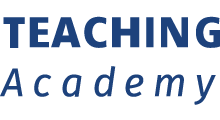Stephen Tay En Rong
Associate Professor Stephen Tay from the Department of the Built Environment obtained his PhD from Imperial College London under the National Research Foundation (Clean Energy) Overseas Scholarship, and subsequently the Advanced Certificate in Training and Assessment (ACTA) certification for andragogy. Assoc. Prof. Tay believes in active learning where the class is a platform for learning by both students (regardless of age) and the educator. Recognising the need to empower his student towards agency, he developed scenario-based student generated questions and answers (sb-SGQAs), which has been employed across courses and institutes. Beyond pedagogy, Assoc. Prof. Tay is also active in andragogy, conducting training activities for local and international organisations. In recognition of his excellence to teaching, he is included in the University Teaching Awards Honour Roll. Beyond teaching, Assoc. Prof. Tay is involved in consultancy roles for both the public and private sectors locally and overseas for solar photovoltaic technical advisories and renewable energy certificate (RECs) adoption. These industry engagements provide industry relevance to help his students draw the link between classroom discussions and industry practice, thereby enhancing teaching and learning.



